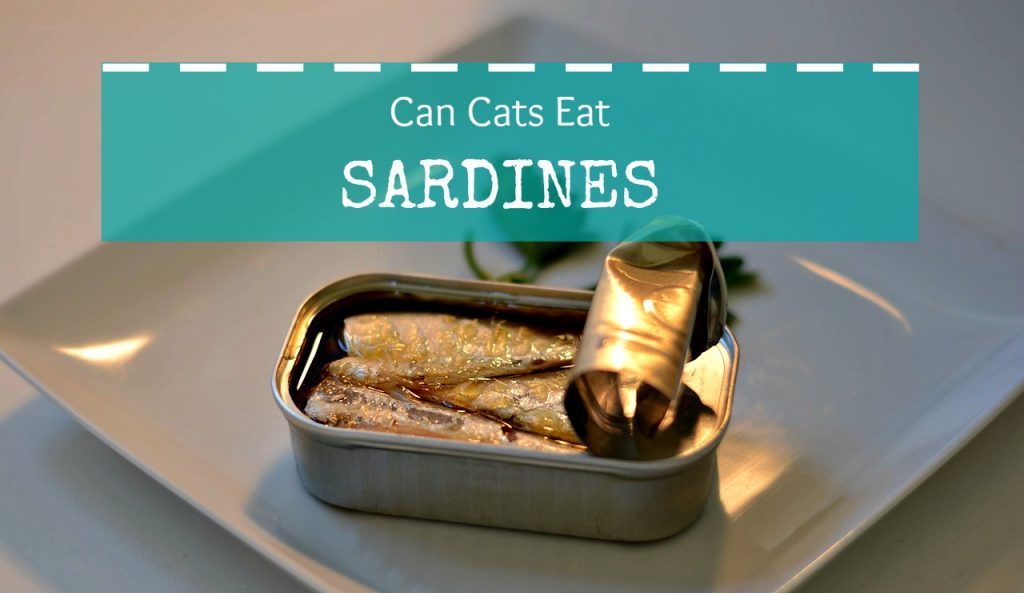If you own a cat then you probably know just how picky of an eater they can be. After trying out various flavors and combinations of food you’ll finally find one that your feline buddy will deem acceptable only for them to get tired of that flavor in a couple of weeks or months.
But have you ever picked up a tin of canned food or have you ever gathered up a bunch of ingredients to wonder whether just because your cat likes the taste, is it healthy to give your cat that particular ingredient? You’d be surprised that the ingredients you grew up thinking cat’s love such as milk aren’t necessarily the best thing to feed your cat and are in fact linked to some of their reoccurring health problems.
So you’re probably now wondering if milk isn’t good for cats, can I feed my catfish? And what other ingredients should I include or avoid? Look no further, we’ve made a list of foods you should and shouldn’t feed your feline buddy.
Can Cats Eat Sardines
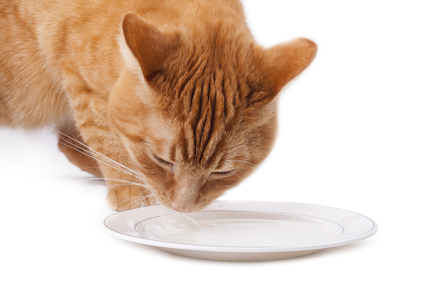
Feeding your catfish is absolutely safe. Although fish is not a natural part of their diet and thus it is advisable to feed them sardines once in a while ( once or twice a week) we wouldn’t suggest making sardines they’re the primary source of nutrition especially if you’re opting to make them home-cooked meals rather than giving them canned food.
Sardines are a high source of protein, fats such as omega 3, vitamin D, B2, B3, B12 as well as calcium, magnesium, and potassium amount other minerals.
However, as rich as Sardines may seem to be in terms of health benefits, it does lack certain nutrients your cat needs and thus can’t be made the primary source of nutrition. If fed in large amounts, it can cause obesity in cats because of the amount of oil present in it. Similarly, cats can also develop allergies to sardines.
Cats love the fishy smell attached to sardines and thus this will make for the perfect treat for them.
Don’t: Milk and Dairy Products
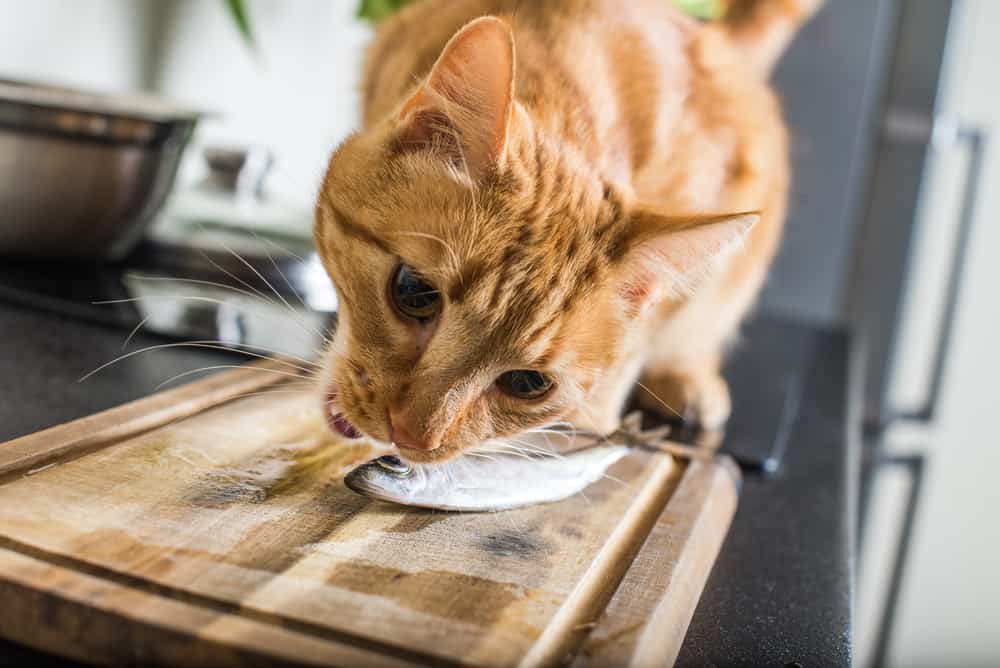
This might come as a shock to you as it did to most of us. Cats are lactose intolerant and thus giving them milk, especially cow milk and other dairy products is not a good idea! Cow milk especially has high fat and sugar content and thus should be avoided. But other types of milk such as nut-based milk (soy/almond/coconut), condensed milk, and evaporated milk are equally as bad.
At best you can feed your cat raw milk or goat’s milk or even lactose-free cow milk. However, these may be expensive or hard to come by.
Adverse effects of giving your cat milk include an upset tummy, diarrhea, and vomiting.
Do: Chicken
Cats are carnivores and their protein intake comes mainly from animal-based sources. So feeding your cat chicken is A-Okay. However, what actually matters is the form in which you feed your cat the chicken. Boiled chicken is always a good option but chicken with bone is not. Bones can injure your cat’s mouth.
Boiled chicken is also a good remedy for your cat if it is suffering from diarrhea. Just add the chicken to a bit of boiled rice.
Also, avoid giving your cat raw chicken. That might cause them to suffer from salmonella or E. coli. It can also cause a parasite disease called toxoplasmosis.
Don’t: Onions and Garlic
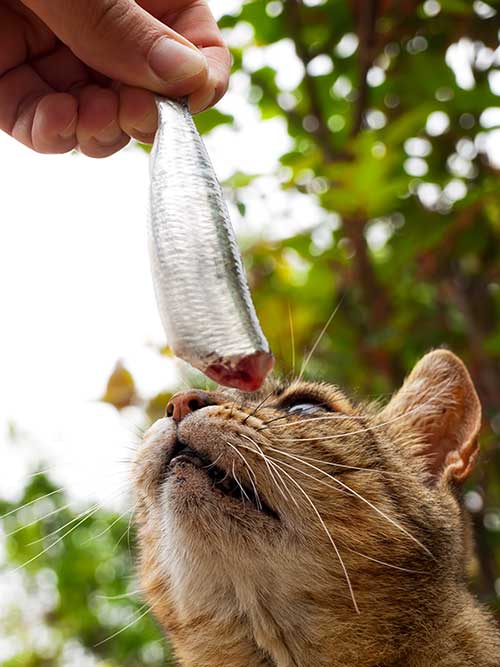
While you might be tempted to mix onions and garlic into your cat’s homemade meals to add flavor to their food, it’s not necessarily a good idea. Onions and garlic regardless of them being in their raw form or a concentrated form such as powdered are toxic for cats.
Onions and garlic are toxic because they break down your cat’s red blood cells and as a result can cause anemia in your cat.
Do: Eggs
Just like meat and fish, cooked eggs are a good source of protein for your cat and can and should be incorporated into their diets. However, while feeding your cat eggs make sure it is thoroughly cooked and there are no eggshells left behind.
However, some cats may be allergic to eggs so it’s always a good idea to feed them a little bit and see if your cat doesn’t react.
Don’t: Alcohol
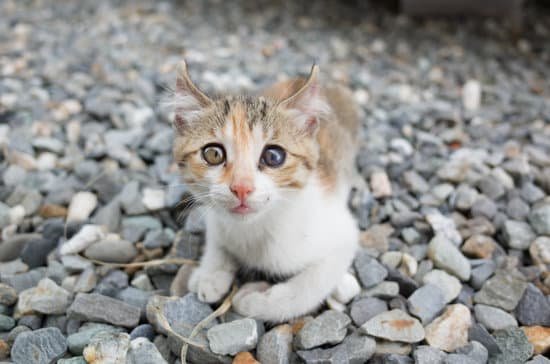
Alcohol in any form, be it beer, wine, or even food containing alcohol should be avoided at all costs. Alcohol can affect your cat’s liver and brain the same way it can affect yours, only it’ll take much less dosage to cause a whole lot of damage. Two teaspoons of whiskey can led to your 5-pound cat ending up in a coma and an added teaspoon can kill your feline friend.
FAQS:
Can I feed my cat canned sardines?
There is a wide variety of canned sardines available in the market and if you plan to feed your cats canned sardines you’ll have to be especially careful about the ingredients. Firstly, make sure there are no garlic or onions present. Sardines in tomato, mustard oil, sunflower oil, olive oil, or soybean oil should also be avoided or drained and washed to wash off the excess oil. Similarly, brine and smoked sardines should also be avoided because of the high amounts of salt which will have to be washed off.
Is oil extremely harmful to cats?
With pets, moderation is always important. So when we talk about oil, in small amounts it might have some positives such as adding extra shine to their coats. In large quantities, it can lead to obesity and other related health problems.
Conclusion:
Pets are family and it’s always a good idea to be aware of what you should or shouldn’t be feeding them. Especially if you have a cat because let’s be honest it’s hard to say no to them and even if you do say no, it’s not like they listen!
